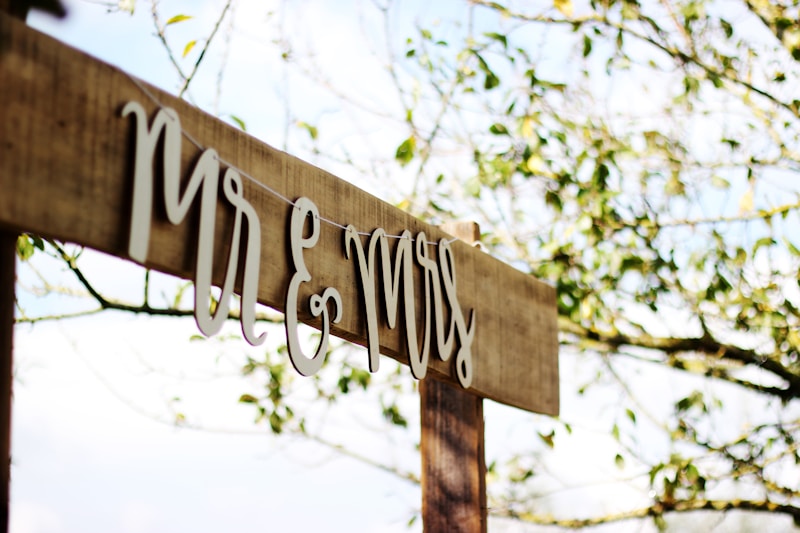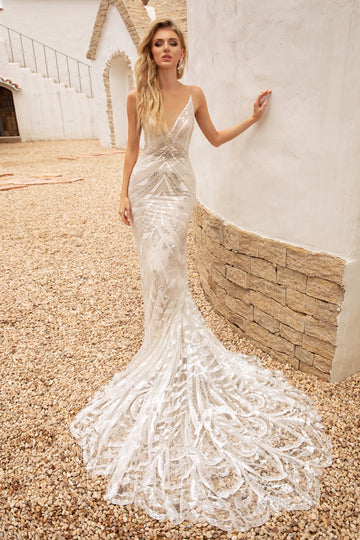The Role of Personalization in Modern Wedding Dresses
The Role of Personalization in Modern Wedding Dresses
Introduction
Weddings are a celebration of love, and every couple wants their special day to be unique and memorable. One of the most significant elements that contribute to this uniqueness is the wedding dress. In recent years, personalization has become a fundamental aspect of modern wedding dresses, allowing brides to express their individuality and style. This article explores the role of personalization in wedding dresses, from tailored designs to unique embellishments, and provides insights for brides-to-be seeking the perfect gown.
Understanding Personalization in Wedding Dresses
Personalization in wedding dresses involves customizing various elements to reflect the bride's personal taste, style, and story. This includes choices such as fabric, silhouette, color, embroidery, and even the incorporation of sentimental pieces. As couples navigate the diverse landscape of wedding planning, the desire for personalization in wedding attire has evolved into a significant trend.
Factors Influencing Personalization Choices
Several factors contribute to how brides personalize their wedding dresses. Some of these factors include:
| Factor | Description |
| Personal Style | Each bride has a unique style, which often influences her dress choice. |
| Wedding Theme | The overall theme of the wedding can guide personalization decisions. |
| Family Traditions | Incorporating elements from family heirlooms or traditions adds depth. |
| Current Trends | Trending styles often spark innovative personalization options. |
| Budget | How much one is willing to spend can affect the level of customization. |
Popular Personalization Options
Brides today have a multitude of personalization options to choose from. Here are some of the most sought-after choices:
1. Customized Silhouette
The silhouette of a wedding dress is a crucial element of its design. Brides can opt for custom silhouettes that flatter their body types, whether it's an A-line, ball gown, mermaid, or sheath dress. Tailoring the silhouette enhances comfort and confidence on the big day.
2. Unique Fabric Choices
Fabrics play a significant role in the look and feel of a wedding dress. While classic options such as satin and lace remain popular, brides are increasingly drawn to unique fabrics like tulle, chiffon, or even non-traditional materials like velvet or sequined mesh. These choices allow brides to create a one-of-a-kind look that aligns with their wedding vision.
3. Intricate Embellishments
Embellishments such as beading, embroidery, or appliqués can add a personal touch to a wedding dress. Brides often choose meaningful symbols or patterns that resonate with their love story. For instance, a bride might incorporate floral designs that hold sentimental value, making her gown even more special.
4. Color Customization
While traditional wedding dresses are usually white or ivory, modern brides are breaking the mold by choosing colored gowns. Customizing the color of a dress can reflect the bride's personality or the overall wedding palette. Shades like blush, lavender, or even bold hues like red are gaining popularity.
5. Incorporating Sentimental Elements
Brides often seek to incorporate family heirlooms or sentimental pieces into their wedding dresses. This could include using lace from a mother's gown, a piece of jewelry passed down through generations, or even a hidden message stitched inside the dress. Such elements provide a deeper connection to family and tradition.

Personalization in the Digital Age
With the rise of technology, personalization in wedding dresses has taken on a new dimension. Online platforms and virtual consultations allow brides to explore customization options from the comfort of their homes. Websites offer design tools that let brides play with different styles, colors, and embellishments to create their dream gown.
Moreover, social media has played a significant role in influencing personalization trends. Platforms like Instagram and Pinterest are flooded with inspirations and ideas, allowing brides to curate their vision boards and visualize their choices. Brands are increasingly using these platforms to showcase personalized dress options, making it easier for brides to find what resonates with them.
Challenges of Personalization
While personalization offers countless benefits, it also comes with its challenges:
| Challenge | Solution |
| Time Constraints | Brides should start the personalization process early to allow ample time for fittings and adjustments. |
| Overwhelm from Choices | Consult with a designer or stylist to guide the decision-making process. |
| Budget Management | Establish a clear budget and prioritize the most meaningful personalization options. |
| Finding the Right Tailor | Do thorough research and read reviews to find an experienced tailor. |
Conclusion: Embracing Personalization in Your Wedding Dress Journey
In conclusion, personalization plays a pivotal role in modern wedding dresses, allowing brides to express their unique selves on one of the most memorable days of their lives. Whether through customized silhouettes, unique fabrics, or incorporating sentimental elements, the options are virtually limitless. However, it’s essential to approach personalization with a clear vision, budget, and timeline to ensure a smooth and enjoyable experience.
Ultimately, the journey of finding the perfect wedding dress should be as enjoyable as the celebration itself. By embracing personalization, brides can create a gown that not only reflects their style but also holds cherished memories and stories that can last a lifetime.
Brides-to-be should carefully consider their choices, embrace their individual style, and enjoy the process of personalization. Remember that your wedding dress is not just an outfit; it’s a significant part of your love story that deserves to be crafted with care and creativity.
